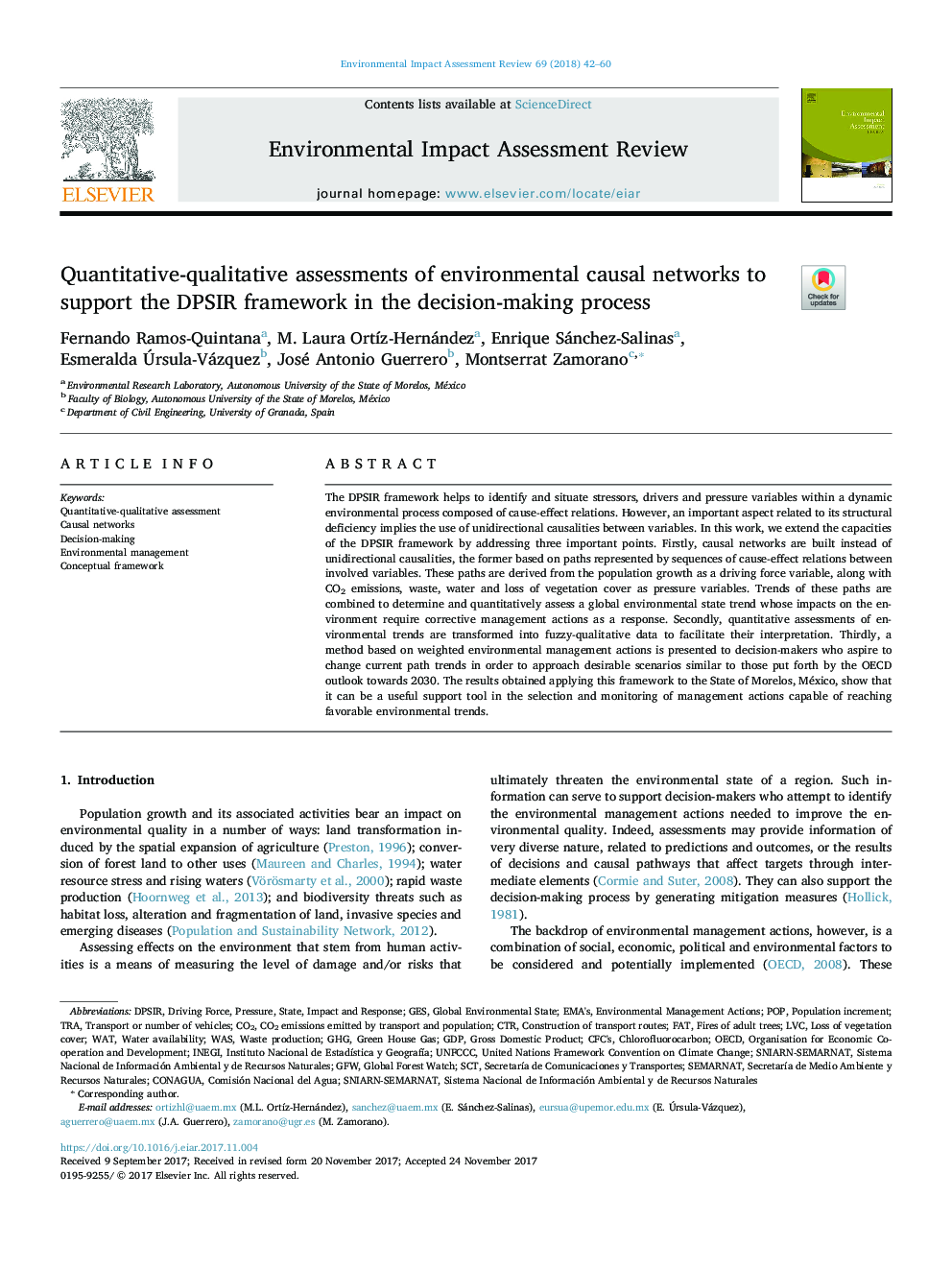| Article ID | Journal | Published Year | Pages | File Type |
|---|---|---|---|---|
| 7464905 | Environmental Impact Assessment Review | 2018 | 19 Pages |
Abstract
The DPSIR framework helps to identify and situate stressors, drivers and pressure variables within a dynamic environmental process composed of cause-effect relations. However, an important aspect related to its structural deficiency implies the use of unidirectional causalities between variables. In this work, we extend the capacities of the DPSIR framework by addressing three important points. Firstly, causal networks are built instead of unidirectional causalities, the former based on paths represented by sequences of cause-effect relations between involved variables. These paths are derived from the population growth as a driving force variable, along with CO2 emissions, waste, water and loss of vegetation cover as pressure variables. Trends of these paths are combined to determine and quantitatively assess a global environmental state trend whose impacts on the environment require corrective management actions as a response. Secondly, quantitative assessments of environmental trends are transformed into fuzzy-qualitative data to facilitate their interpretation. Thirdly, a method based on weighted environmental management actions is presented to decision-makers who aspire to change current path trends in order to approach desirable scenarios similar to those put forth by the OECD outlook towards 2030. The results obtained applying this framework to the State of Morelos, México, show that it can be a useful support tool in the selection and monitoring of management actions capable of reaching favorable environmental trends.
Keywords
GESGFWLVCDPSIROECDCTRUNFCCCGHGScTWASDecision-makingWaste productionGross domestic productGDPWater availabilityOrganisation for Economic Co-operation and DevelopmentCausal networksEnvironmental managementtrapopConceptual frameworkFatWATCO2chlorofluorocarbonUnited nations framework convention on climate changeGreen house gas
Related Topics
Physical Sciences and Engineering
Energy
Renewable Energy, Sustainability and the Environment
Authors
Fernando Ramos-Quintana, M. Laura OrtÃz-Hernández, Enrique Sánchez-Salinas, Esmeralda Ãrsula-Vázquez, José Antonio Guerrero, Montserrat Zamorano,
